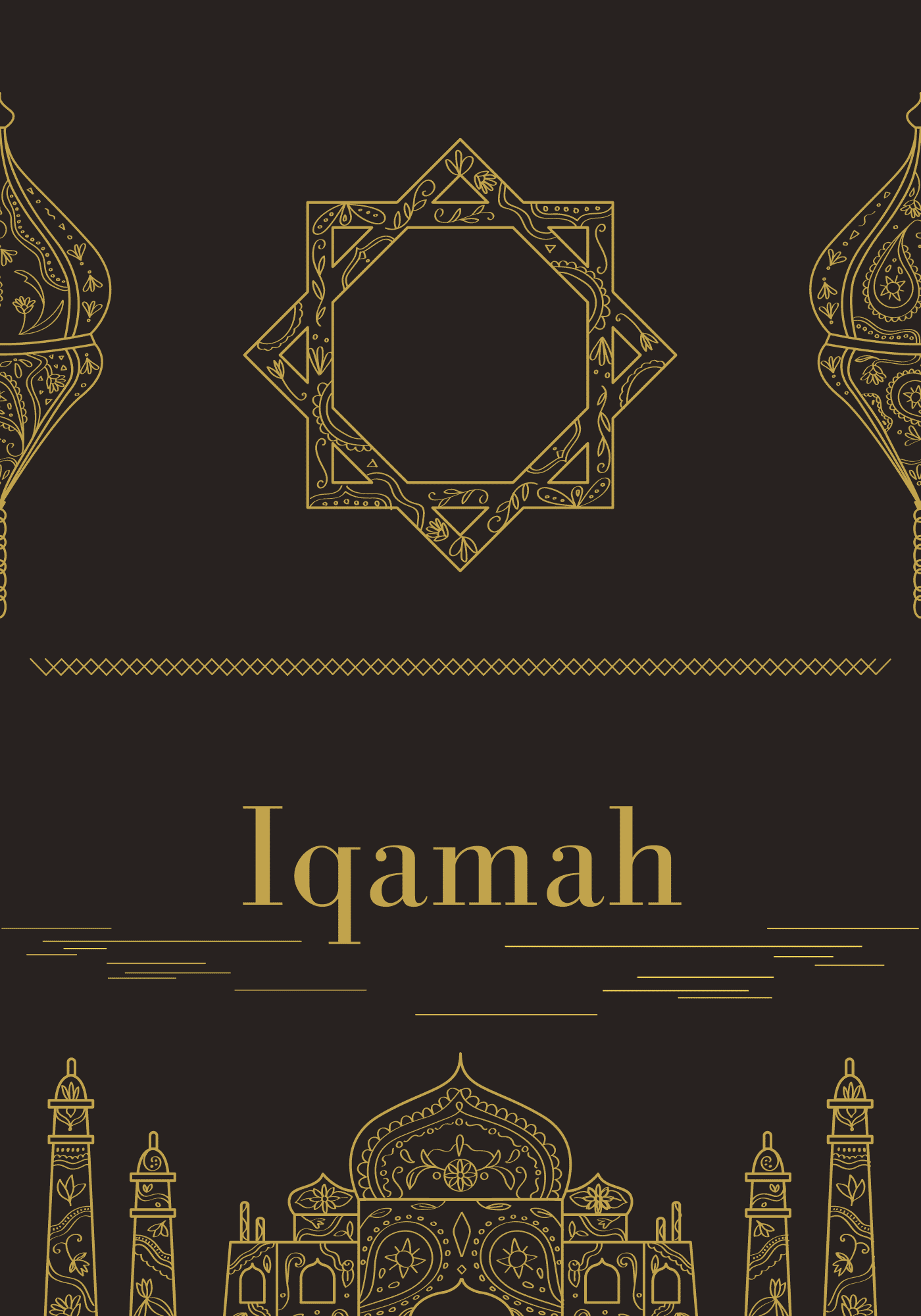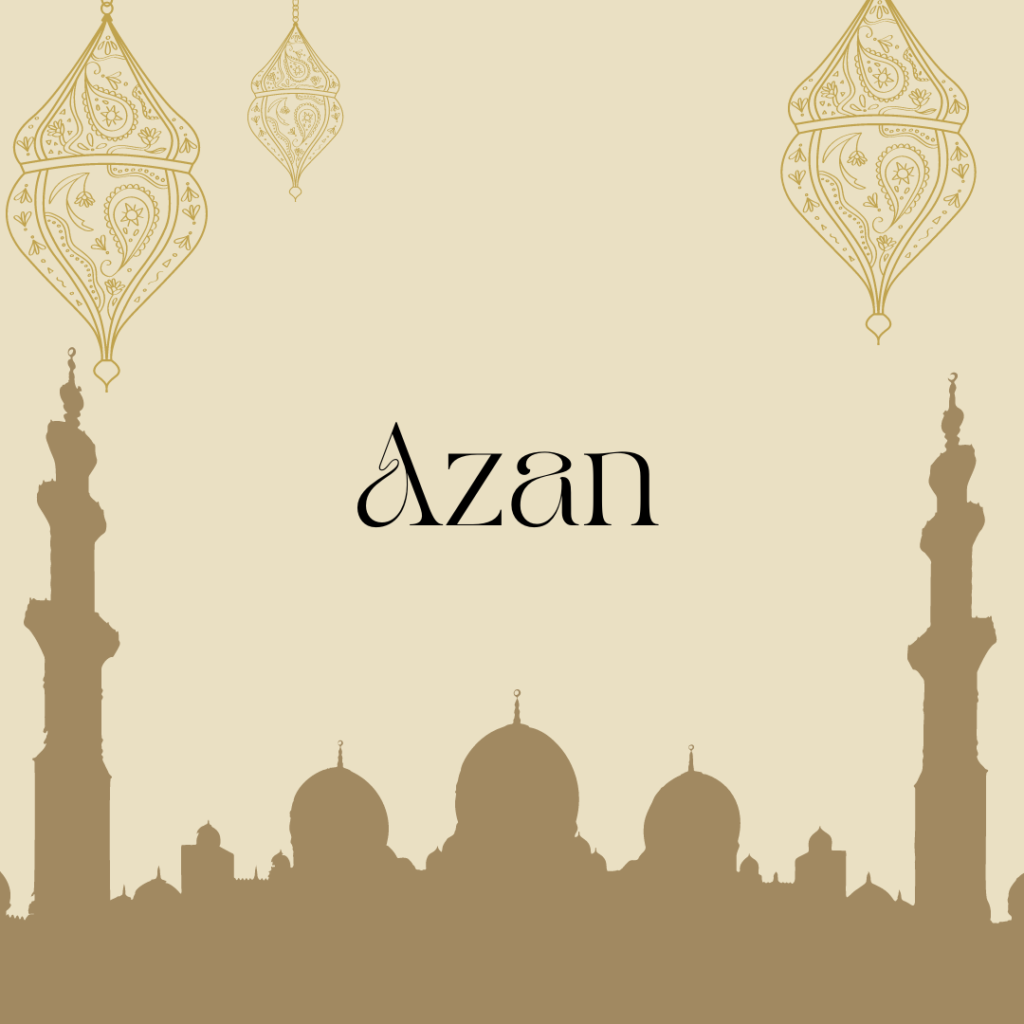Duaa is an Arabic term that refers to a supplication or prayer made to God. In Islam, Duaa is considered to be an important part of a person’s relationship with God, and it is a way for Muslims to communicate with Him and seek His guidance and blessings.
One common time for Muslims to make Duaa is after the Adhan, or call to prayer. The adhan is a ritual performed before each of the five daily prayers, and it is a way for Muslims to be summoned to the mosque to pray. After the adhan is recited, it is traditional for Muslims to make Duaa and ask God for His guidance and blessings.
There are many different Duaa that can be made after the adhan, and they can be specific or general in nature. Some common Duaa that are made after the adhan include:
- “Oh Allah, help me to remember You and thank You, and to worship You in the best way possible.”
- “Oh Allah, guide me on the straight path, the path of those whom You have favored, not of those who have earned Your anger or of those who go astray.”
- “Oh Allah, I ask You for the good in this life and in the hereafter, and I seek refuge in You from the evil of this life and the hereafter.”
- “Oh God, I ask You for Your mercy and Your forgiveness, and I seek refuge in You from Your punishment and Your wrath.”
Making Duaa after the adhan is an important way for Muslims to connect with God and seek His guidance and blessings. It is also a way for Muslims to express their devotion to Him and their commitment to living according to His teachings.
In addition to making Duaa after the adhan, it is also important for Muslims to make Duaa throughout the day, in all aspects of their lives. Duaa can be made for a wide range of purposes, including for help and guidance, for protection and safety, for forgiveness and mercy, and for the well-being of others.
Making Duaa is an important part of the Muslim faith, and it is a way for Muslims to communicate with God and seek His guidance and blessings. By making Duaa after the adhan and throughout the day, Muslims are able to strengthen their relationship with God and deepen their connection with Him.
The recitation of the Azan, whether with or without a loudspeaker, is widely agreed to have a calming effect across Muslim sects. The Adhan is a particular call to salah in Islam (prayer). Every prayer and worship occasion is announced by a Mu’addhin calling the Adhan from the minaret of a mosque. According to Islamic tradition, the Adhan is also the first thing a newborn baby should hear. You can speak the words in any language relevant to you, including English, Arabic, and others.
Azan
“To listen” is the Arabic term adhan. For Muslims, the practice acts as a declaration of shared conviction and religion and a signal that prayers are about to commence inside the mosque.
Muslims are then summoned to line up for the prayers by a second call, known as iqama.
Iqamah

The call to prayer (Adhan) and the call to begin (iqama) are identical.
There are, however, a few distinctions between them, including:
- The phrase “the prayer has begun” (qad qamat al-salat) is added in the iqama.
- The Adhan is said at a faster pace than the iqama.
- The individual offering the iqama does not put his fingers in his ears or turn his head left or right when giving the iqama.
The significance of Azan in Islam
Let’s talk about the significance of Azan in Islam now that we know what it means. According to the Prophet Muhammad Sallallahu ‘Alaihi Wa Sallam’s hadith, the importance of Azan is as follows:
The greatest callings
It is being chanted worldwide and, in fact, an incredible voice from Islam.
It is given five times each day.
The sounds of Azan worldwide are the same, praising Allah Subhanahu Wa Ta’ala’s greatness inviting people to pray and achieve victory.
Azan also serves as a reminder to come face to face with Allah Ta’ala.
You may also learn how to make a dua for success and win in life.
As a reminder to fight lust
Hayya alal Falah is referenced in the Azan, which means “let go to triumph.”
It has a lot to do with our victory over our lust. We should combat our lethargy when it comes to doing congregation prayer in the mosque after it has finished.
It reminds us to battle our lust, making us more committed to prayer.
Satan is pursued
According to Abu Hurairah, Rasulullah (S.W.T.) stated, “If Azan is sent out to pray, Satan will fart till it does not hear Azan.
“If Azan is gone out to pray, Satan go and fart until it does not hear Azan. If mu’adzin finishes Azan, it come and go again when the Iqomat calls.” (Narrated by Bukhari, Muslim)
A huge reward
The message of Rasulullah Shallallahu ‘Alaihi Wasallam came from Abu Hurairah radhiyallahu anhu:
“If people know how big is the reward of Azan and the first raw, then they cannot get it except by lottery, they will vote to get it.” (Narrated by Bukhari, Muslim)
Mu’adzin’s remuneration
In a hadith, it is stated:
“Mu’adzin gets a reward like the reward of people who pray with him.” (Narrated by An Nasa’i)
When the Mu’adzin peals the Azan and numerous people arrive at the mosque because they heard the Azan, the Mu’adzin will get a significant reward from those who come to pray with him.
Mu’adzin’s neck will be extended in the hereafter
As explained in the Prophet Muhammad Sallallahu ‘Alaihi Wa Sallam’s hadith:
“Mu’adzin are people who have a long neck in the Hereafter.” (Narrated by Muslim)
Allah will make Mu’adzin proud in the presence of angels
A hadith explains it this way:
“Your Lord wonders to a shepherd on the top of the mountain, he peals Azan to pray, then he prays. Then Allah Subhanahu Wa Ta’ala said: “Look at my servant, he peals Azan and iqomat to pray, he is afraid to Me, I have forgiven my servant and entered him to the Heaven.” (Narrated by Abu Dawud and An Nasa’i)
Allah Subhanahu Wa Ta’ala will admit Mu’adzin into the Heavens
Furthermore, it is based on the hadith that was stated in the eighth significance, and it is clarified again in a hadith by Rasulullah Sallallahu ‘Alaihi Wa Sallam:
According to Abu Hurairah:
From Abu Hurairah said: “We have heard with Rasulullah S.A.W., then Bilal stood to peal Azan, then when he finished, Rasulullah S.A.W. said ‘whoever says like this surely, he will enter to the Heaven.”
As a result, Azan is extremely important in Islam. Hopefully, this essay will be beneficial and strengthen our confidence in Allah Subhanahu Wa Ta’ala. Amen.
Dua after Adhan
The lovely Adhan, a summons for all Muslims to gather and pray together.
This happens precisely five times every day or 1825 times per year.
But how many of us are familiar with Prophet Muhammad’s sunnah on what he says in prayer after hearing the Adhan?
We found the following dua after hearing adhan, according to Al Bukhari’s Hadith:
‘Allahumma Rabba hadhihi-dda` watit-tammah, was-salatil qa’imah, ati Muhammadan al-wasilata wal-fadilah, wa b`ath-hu maqaman mahmudan-il-ladhi wa`adtahu’
Translation into English:
O, Allah! Lord of this perfect call (perfect by not ascribing partners to You) and of the regular prayer which is going to be established, give Muhammad the right of intercession and illustriousness and resurrect him to the best and the highest place in Paradise that You promised him (of)]. My appeal for him will be allowed on the Day of Resurrection”.
The Advantages of Reciting the Dua After Adhan
This dua has several advantages; make sure to recite it as it is beneficial.
- The individual who recites it will receive Prophet Muhammad PBUH’s Syafaah (Intercession). – Bukhari, Sahih.
- It is never denied to make dua after reciting it. Sunan Abi Daud
- Answering the Adhaan is Sunnah. – Muslim Sahih.
- Recite Salawat must be said after Adhan. – Muslim Sahih.
- A dua between the Adhaan and the Iqamah is never turned down. Sunan Abi Daud
Join our Quran Courses to learn Quran Arabic and Tajweed online



